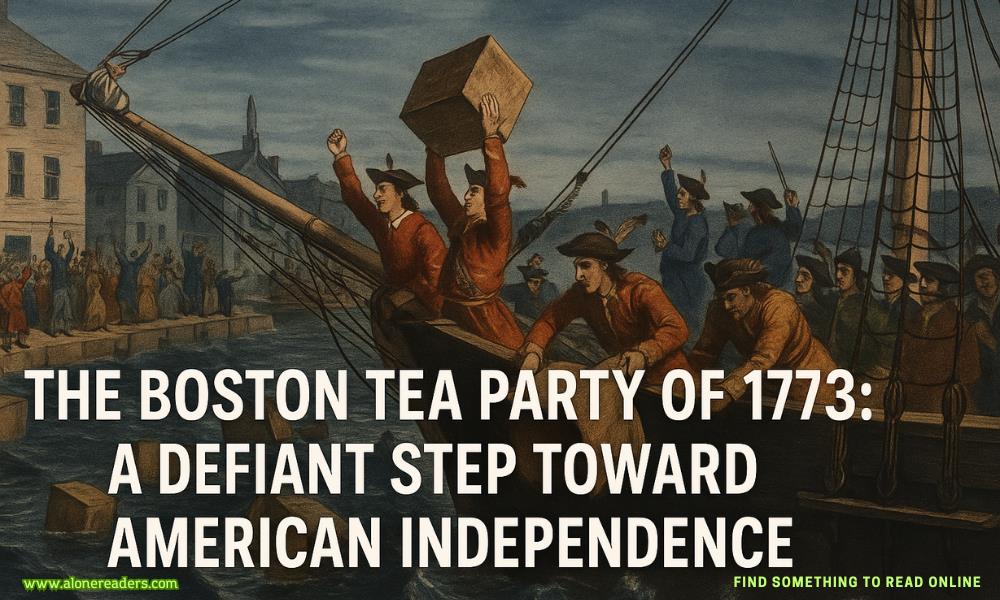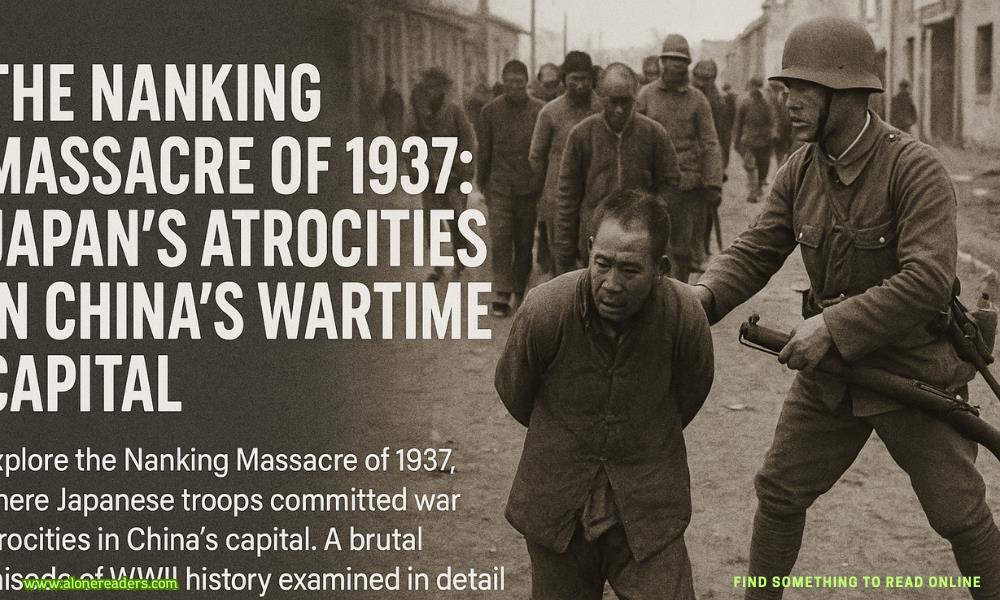Page 119 of Six Wild Crowns
“I don’t think she did,” Seymour says. “I know it sounds mad, but I believe she loves him, despite everything.”
“Doesn’t matter what’s true, though, does it? All that matters is what things look like. If they execute him publicly people will think the king’s not got what it takes to satisfy a woman.”
Seymour nods shakily. “What else have you gleaned?”
“I heard that Parr went back to Mathmas, and Aragon’s obviously in Daven with the princess. But Queen Cleves is here.”
Seymour’s treacherous heart beats a little faster, and she tries not to respond too eagerly. “Yes? And did she say she’d help?”
“Not exactly,” Clarice says, frowning. “She gave me this note for you.”
They hand Seymour a folded piece of paper, written in haste. As Seymour reads it, and works out the messy letters, the plan that has been taking shape in her muddled brain, gets its final, missing piece.
Remember that Haltrasc likes to HUNT.
CHAPTER FORTY-SEVEN
Boleyn
Boleyn never had business in the Tower of Elben, so she never thought much on it. Her eyes slid over the building whenever she walked the grounds of High Hall, erasing it from her view of the kingdom, the king, and the power he wields.
The Tower is set on an island abutting the south-west gardens of High Hall. Its exterior is coated in green enamel, so it gleams like poison. It is also entirely smooth – a gilded cruelty – a beautiful way of preventing anyone from climbing up, or down. Boleyn is led across the single bridge, over a moat filled not with water but with bubbling oil that leaves a greasy coat on her skin. She once heard, in one of those fairy tales told by nurses to frighten children, that the oil is kept hot by a legion of dragons, held in caves beneath the moat and fed with prisoners of war. Two of those dragons stand guard on either side of the bridge, their scales varnished withgimrodor, a precious oil that turns anything it is painted upon to stone. Only the dragons’ eyes remain uncoated, and they roll and gleam with fear and fury at any who pass.
At the crossing, one of Boleyn’s guards produces a short knife from his belt and brandishes it at her, smirking when she flinches. Silently, he hacks at her wedding dress, cutting the train until the gown sits raggedly just below her ankle. He balls up the rest of the fabric andhurls it over the bridge into the oil. Boleyn stares as the crimson velvet grows darker, the oil seeping into it, and is consumed and pulled beneath the surface. She wonders at the hatred this stranger bears her, that he is willing to destroy material that could have paid his annual salary many times over, simply for the pleasure of seeing her distress.
The guard leads her onwards. The wall seems to fracture, and a door appears. A maw.
Inside the Tower, no care has been taken to make it look palatable. The impressive door gives way to a windowless room filled with guards. They stare at Boleyn, so expressionless that they could be statues rather than living beings. At one side of the room, a narrow staircase winds up around a central pillar. The space is oppressively hot. Her throat burns when she inhales. A pit covered with iron bars sits in the centre of the space. Roars and growls rise from its depths, and with each one the pit glows with a burst of flame.
The guard pushes her up the stairway. She climbs, her calves burning after only a few floors. She tries to find mercy in the fact that the heat ebbs away as they go higher. By the time her skin is prickled all over with sweat, she stumbles out of the stairway into a narrow corridor lit by candles. They are at the apex of the Tower.
Before her, a new guard stands next to a heavy oak door set with a small, iron-clad window. Silently, the guard unlocks the door and opens it for her. With nowhere else to go, Boleyn enters the cell. Behind her, the key turns in the lock.
The cell is almost circular, apart from a single straight wall containing the door. It is bare except for a truckle bed and a pot for excretions. There is one glassless window, too small for any but the smallest of children to slip through. An icy wind snaps through the window. If she looks outward, she can see High Hall – the rooms that were, for a brief time, hers, and the dome where Henry might be, even now, deciding her fate.
Directly below her window is a courtyard, set across from the moat. There, a dozen or so men carry planks of wood, assembling them into a stage, hammering them into place and jumping onthem to test the sturdiness of the platform. Fear and exhaustion have made Boleyn slow-witted, for it takes her some time to understand what they are making. It is only when they bring the block, with its horseshoe divet, that she realises. She screams, out into the mounting dusk, and the wind carries her scream far, far away, across the forest of her territory and out to the Sea of Hreonessa.
Once the sun has set, they bring torches. Boleyn clings to the windowsill until her hands ache and her wrists smart. Everything in her is numbed – her muscles, her mind, her heart. Yet even as she mourns the loss of her love, she can’t help but acknowledge that part of the reason she fell in love with Henry was his ruthlessness. He courted her with brutality, from the moment she urged her horse to overtake his in the woods. This execution is the natural ending to their courtship, and better by far than the slow-wasting death she would otherwise have endured.
As the sun sets behind the king’s dome, the guard comes in with a dirty plate of rotting meat and stale bread, along with a tankard of warm perry. He pauses in the doorway.
“I can get you better, if you want,” he says.
Boleyn stares at a maggot crawling over the meat and swallows her pride.
“Really?”
“Certainly. I’ll want paying, mind.”
She drags her eyes up from rotting meat to rotten man, and he smiles slowly as he slides a hand down the front of his trousers.
“You’re disgusting,” she whispers.
In an instant, that hand is out of his trousers and around her neck. He pushes her against the wall and squeezes until she chokes.
“Don’t think you’re better than me, you whore,” he whispers. He stinks of ale and arousal. He bangs her head once against the wall, then releases her, letting her slide to the floor gulping in ragged breaths. He kicks the plate towards her.
“You’re not even attractive,” he says, as though it’s the worst insulthe could possibly throw at her. He slams the door and the key turns in the lock.
- The Prince's Secret Twins by Elizabeth Lennox
- Tangled Desires by Tory Baker
- At the Edge of Surrender by A.L. Jackson
- A Touch of Fate by Cora Reilly
- Untouchable Love by Lucy Darling
- After Hours by Caitlin Crews
- Shelter from the Storm by Mari Carr
- Someone Knows by Vi Keeland
- Hawk by Fiona Davenport
- The Silencer by Brooke Summers
- The Beat of her Heart by Emily Hayes
- The Neighbor's Son by K. Webster
- Vasily the Hammer by C.B. Alice
- Convenient Vows by D.C. Beks
- Wrapped in Silver by Sara Vice
- Ruined By Capture by Sherry Blake







